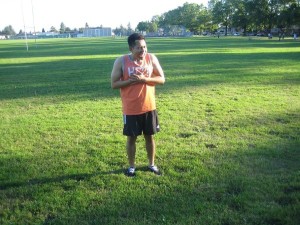Pneumonia is a condition of the lungs in which the air sacs in the lungs becomes inflamed and there is accumulation of fluid and pus that results to chronic cough and shortness of breath. This condition can be mild or dangerous especially for the elderly and the children. Pneumonia can be caused by virus, bacteria or fungi.
What are the types?
Community-acquired pneumonia is the most common type usually caused by bacteria, virus and fungi.
- Pneumonia caused by bacteria happens after having common cold or flu and it affects a single lobe of the lung. It is called sleeping pneumonia and does not need any treatment.
Take the prescribed over-the-counter antibiotics to treat symptoms of bacterial pneumonia. - Pneumonia caused by fungi usually happens due to droppings of birds present in contaminated soil. People with underlying conditions and compromised immune system are susceptible to this condition.
Hospital-acquired pneumonia affects people after being confined in the hospital for periods. This condition is difficult to treat because the bacterium that causes the infection is resistant to antibiotics. It is common in people who are under mechanical ventilation.
Another category which is called aspiration pneumonia is caused by inhaling food, drink or saliva into the lungs. It usually happens after excessive drinking of alcohol or drugs or having problems with swallowing.
Symptoms of pneumonia
- Fever
- Chills
- Excessive sweating
- Muscle pains
- Chest pain when coughing
- Low body temperature
- Fatigue
- Nausea and vomiting
- Cough with sticky sputum
- Diarrhea
- Headaches
Treatment
- Take the prescribed over-the-counter antibiotics to treat symptoms of bacterial pneumonia. It takes about a couple of days to lessen the symptoms.
- Take the prescribed antiviral medications to lessen the symptoms of viral forms of pneumonia. It takes about several weeks to lessen the symptoms.
- Take the prescribed over-the-counter medications such as aspirin or ibuprofen to lessen the pain and the inflammation.
- Take the prescribed cough medications to lessen the severity of the cough.
- Take plenty of rest. Stay away from school/work for at least a few days until the symptoms are minimized
- Drink plenty of liquids at least 6-8 glasses of water regularly to keep the body hydrated.
- Take a hot and steamy shower for easy coughing up of the mucus and clearing the lungs. Another alternative is using a humidifier inside the room.
Tips
- Get the pneumonia and seasonal flu vaccination
- Cessation of smoking
- Maintain good hygiene
- Eating a well-balanced diet
Disclaimer / More Information
The material posted on this page on pneumonia is for learning purposes only. Learn to recognize the indications of this respiratory condition by taking a first aid and CPR class with one of our training providers.

